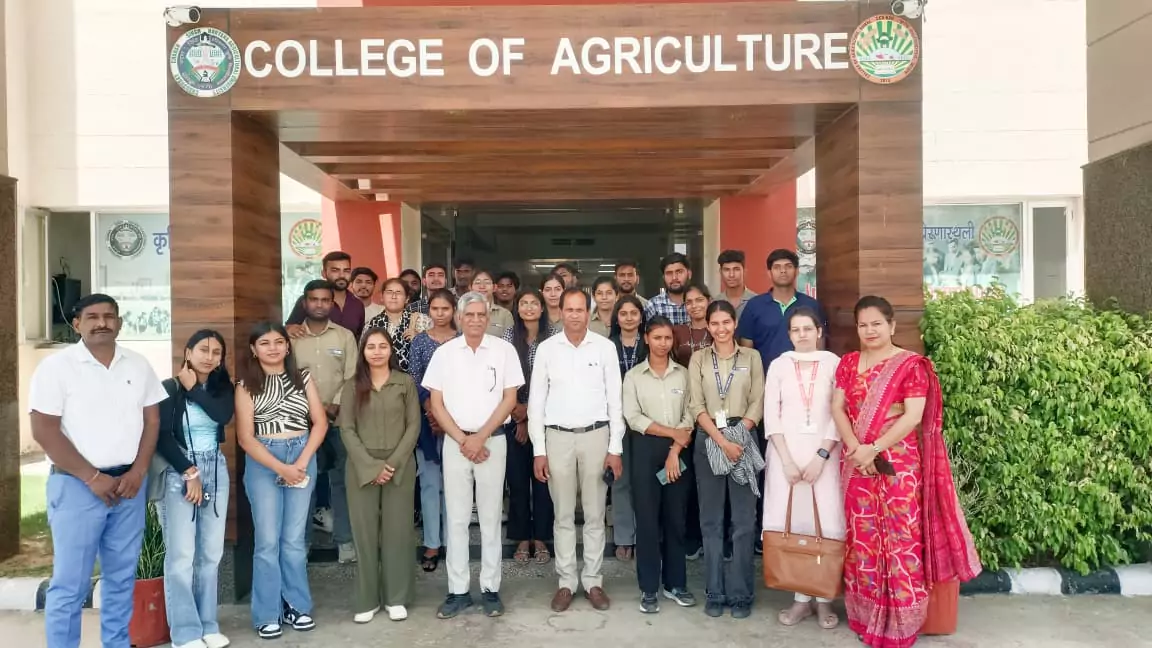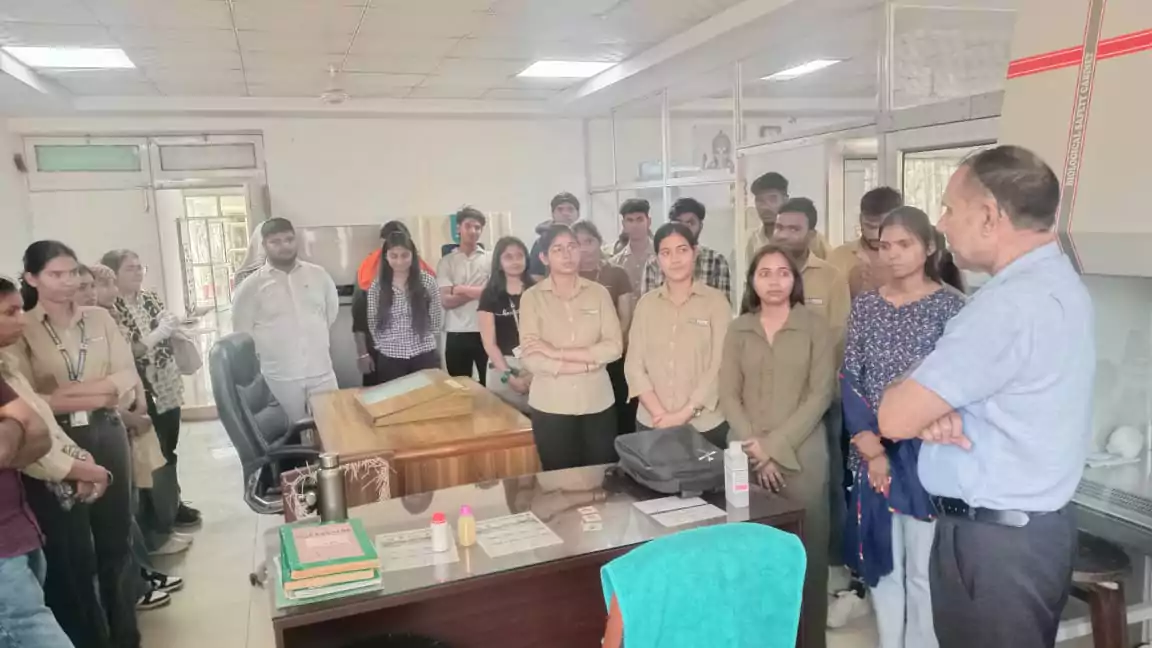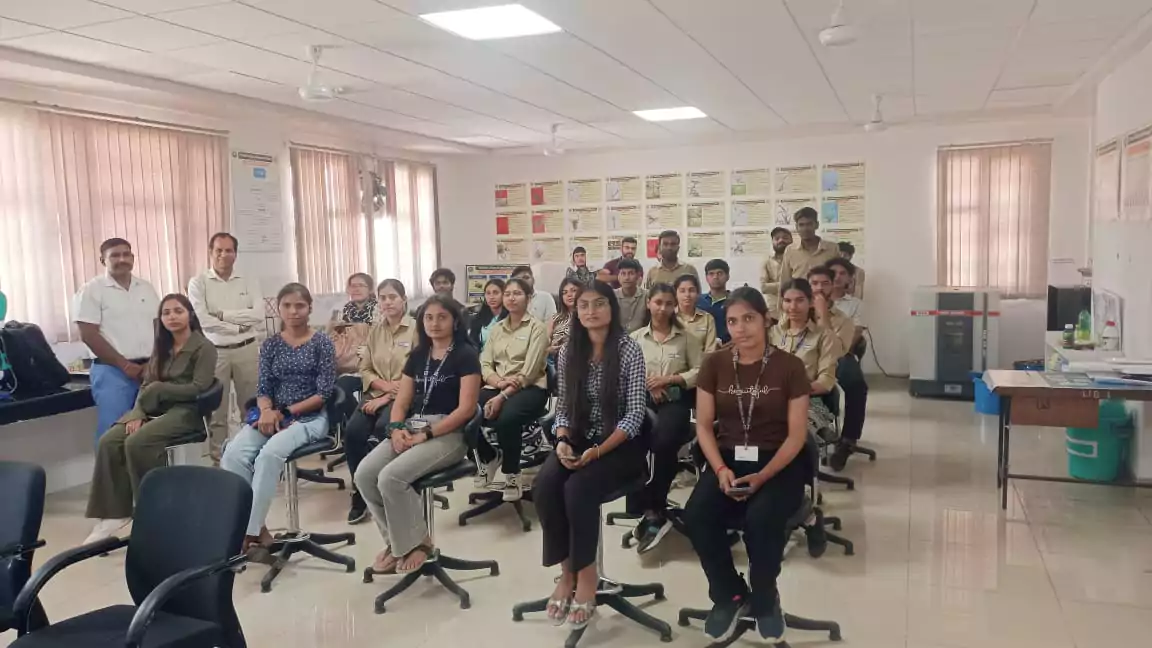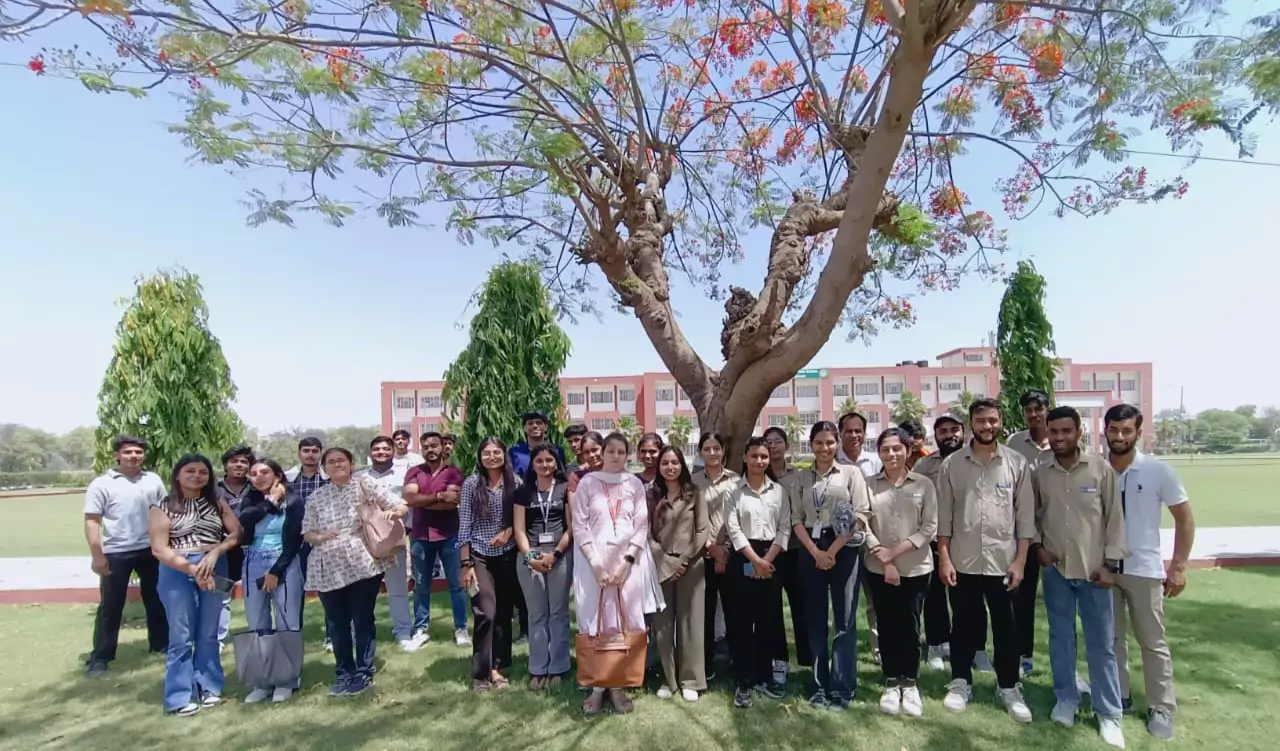Educational Visit to CCS Haryana Agricultural University, Bawal, Haryana
Updated on: April 28, 2025

Educational Visit to CCS Haryana Agricultural University, Bawal, Haryana
Educational visit to CCS Haryana Agricultural University, Bawal, Haryana was organized by the Faculty of Agricultural Sciences (FASC), on 24th April, 2025 for the students of B.Sc. (Hons.) Agriculture 3rd year and M.Sc. Ag. Agronomy students. The purpose of this visit was to expose students to practical and research-oriented learning in the field of agriculture. The visit aided in bridging the knowledge gap between classroom theory and practical agriculture applications.
Objectives
The objectives of the visit to CCS Haryana Agricultural University, Bawal, Haryana were –
- To understand various agricultural practices, modern technologies, and crop management techniques.
- To interact with subject experts and scientists.
- To observe and learn about experimental farms, laboratories, and demonstration units.
- To familiarize students with the research activities and infrastructure of the university sub-campus.
Activities and Observations
The faculty coordinators Dr. O.P.S Khola and Dr. Preeti Singh, accompanied the students of B.Sc. (Hons.) Agriculture 3rd year and M.Sc. Ag. (Agronomy) to various departments and facilities of the sub-campus, including:
- Post Harvest Laboratory: Students explored various post-harvest products as part of an educational experience, likely focusing on methods for preserving and adding value to agricultural produce after harvest. These methods include drying, canning, freezing, and processing into products like juices, squash, jam, jelly, ber candies, amla candies, murabba and pickles. The lab In-charge Dr. Pooja also provided the Belgiri RTS drinks to all the students during the Lab visit, which was prepared by their students during the Experiential Learning Program (ELP), the RTS drink was very refreshing.
- Soil Science and Agronomy Laboratory: Students learned about different types of rocks (including granite, basalts etc.) and soil samples. Students also observed various watershed models and soil moisture measuring instrument, tensiometer. Students learned that in an agronomy laboratory watershed models and moisture measuring equipment are used together to understand and predict water flow and soil moisture dynamics within a watershed.
- Biofertilizer Production Laboratory: Students learned about potato dextrose agar (PDA) and agar-agar, which are crucial components of the medium used to cultivate fungi and other microorganisms. Students observed the instruments used in the preparation of bioagents. Dr. Naresh Yadav also informed students about how PDA provides a nutrient-rich environment for fungal growth, while agar-agar serves as a solidifying agent. Students also observed the sample of nematode, Anguina tritici, which is a causal organism of Tundu disease in wheat and Sclerotia of Sclerotinia stem rot of mustard. Students learned about Karnal bunt, also known as partial bunt, which is a wheat disease caused by the fungus Tilletia indica.
- Agro-meteorology Unit: Real-time data collection systems and their role in weather forecasting for agriculture were explained.
- Agricultural Museum: Students visited a well-organized museum that showcased the achievements of the institution along with integrated models related to plant disease, insect pests, soil profile and traditional to modern implements.
Interaction with Faculty and Experts
Interactive sessions were held where students had the opportunity to ask questions and discuss current challenges in agriculture, recent innovations, and opportunities in agri-entrepreneurship. Faculty members encouraged students to consider research and higher studies in their areas of interest.
Learning Outcomes
- Enhanced understanding of practical agricultural techniques and scientific research processes.
- Increased awareness of sustainable agricultural practices and climate-resilient farming.
- Motivation to participate in research projects and internships.
- Broadened perspective on career opportunities in agriculture and allied fields.
Conclusion
The educational visit was a highly enriching experience for the students. It provided them with valuable exposure to real-world agricultural practices and research methodologies. The visit successfully fulfilled its objectives and contributed to the holistic academic development of the students.




